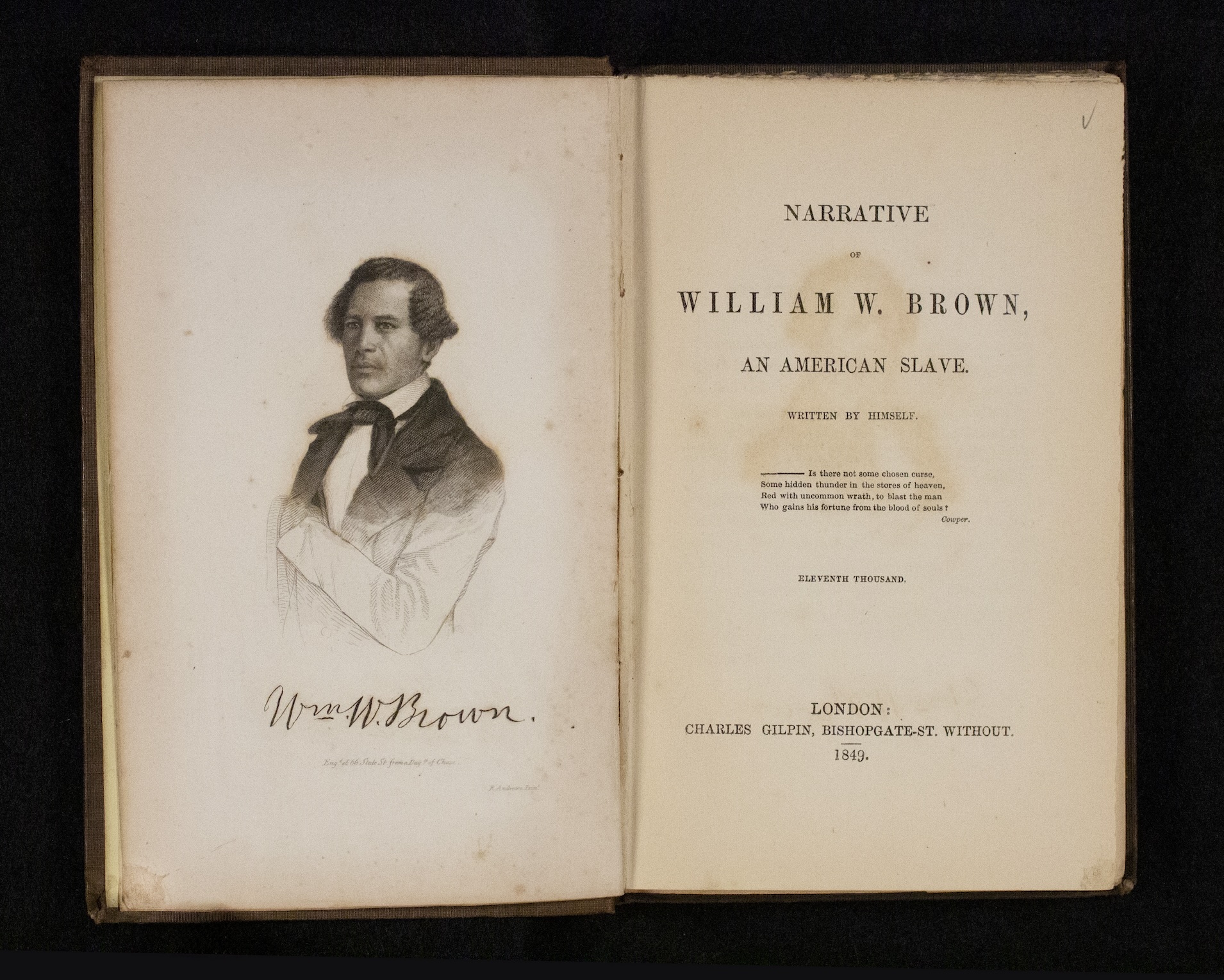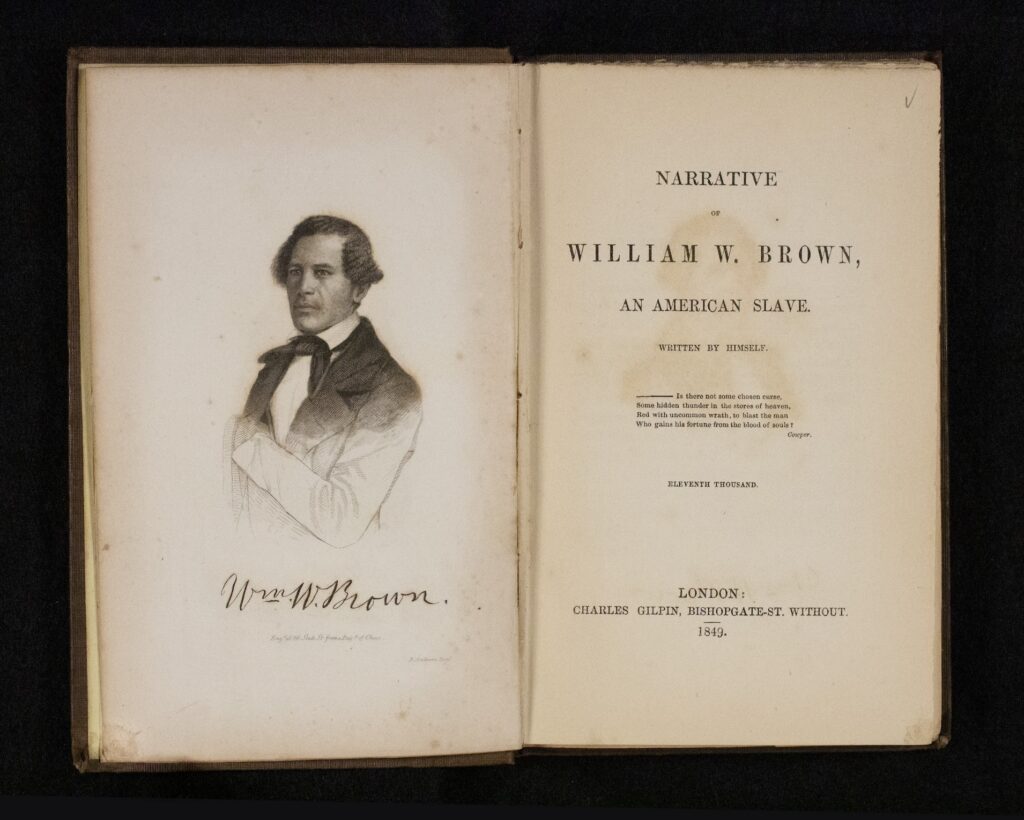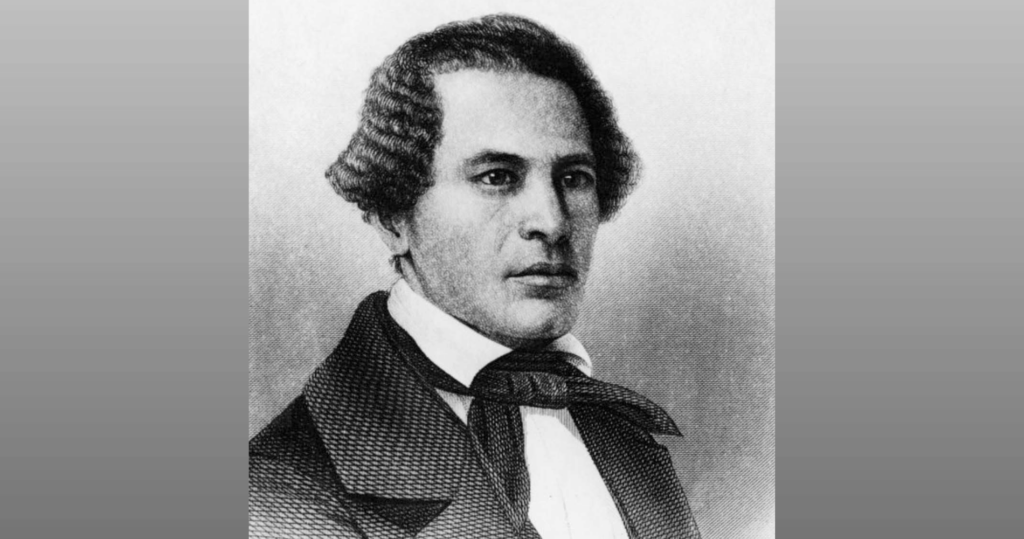
The Autobiography of William Wells Brown
WashU Libraries’ recent acquisition of a first British edition of Narrative of William W. Brown, an American Slave, Written by Himself (1849), is an important addition to the collections and will help students and scholars gain a deeper understanding of St. Louis’s history.

Who was William Wells Brown?
William Wells Brown was born into slavery in 1814, the son of a white man and an African American woman. His enslaver eventually moved to St. Louis, and Brown was forced to work in a variety of trades before he was able to escape in 1834. His writings, including his autobiography, were extremely popular and widely read. He wrote in a variety of genres including fiction, drama, and nonfiction. He wrote a history of the roles and achievements of African Americans in the military and was also the first African American author to publish a novel in the United States.

Unlike slavery on plantations in the Deep South, enslaved people in St. Louis were commonly hired out to people other than their enslavers. Brown was forced to work in several jobs in the city, ranging from an assistant at Elijah Lovejoy’s newspaper, where he learned to read and write, to working for a slave trader, making trips up and down the Mississippi River—a job that Brown described as “horrific.”
During a trip to Ohio on January 1, 1834, Brown was able to escape and travel to Canada. As a free man, he wrote his life story and published it to further the cause of abolition. With the proceeds from his writing, and support from British abolitionists, Brown traveled widely in Europe doing speaking tours to raise funds in support of abolishing slavery in the United States.
Acquiring the Book
In late 2019, Miranda Rectenwald, curator of local history, spoke with Cassie Brand, curator of rare books, about obtaining a copy of Brown’s autobiography for the Libraries. Original editions of this work are very rare and don’t come up for sale that frequently.
“We wanted to acquire this book because it’s a document of someone who was enslaved in St. Louis and is a revealing artifact of that time and how slavery functioned in St. Louis,” Rectenwald said.
After four years of searching, WashU Libraries were able to purchase a copy of the first British edition with the generous help of the James E. and Joan Singer Schiele Endowment, which supports collecting material about the Civil War and the Reconstruction Era.
In addition to the content, the physical book can reveal other aspects of history to students and scholars. Brown’s autobiography’s frontispiece—the illustration facing the title page—contains an author portrait done in a classic style often used by white authors at the time.
“Author portraits were often used as a sign of respectability and Brown portrays himself as a gentleman, declaring himself to be equal with other respected, published authors of that time, even if the government and wider society didn’t recognize that. Access to the physical object versus the online text is very powerful for students and has been used in College Writing I classes on identity and selfhood, classes on printing history, and the Enslavement in St. Louis course,” Brand said.
Brown traveled and lectured widely in Europe and wrote on the theme of escape from slavery in multiple works and genres starting with this pivotal autobiography. The Narrative of William W. Brown reveals the harsh realities of slavery in St. Louis and will contribute to the ongoing reparative work being conducted by the WashU and Slavery Project.
